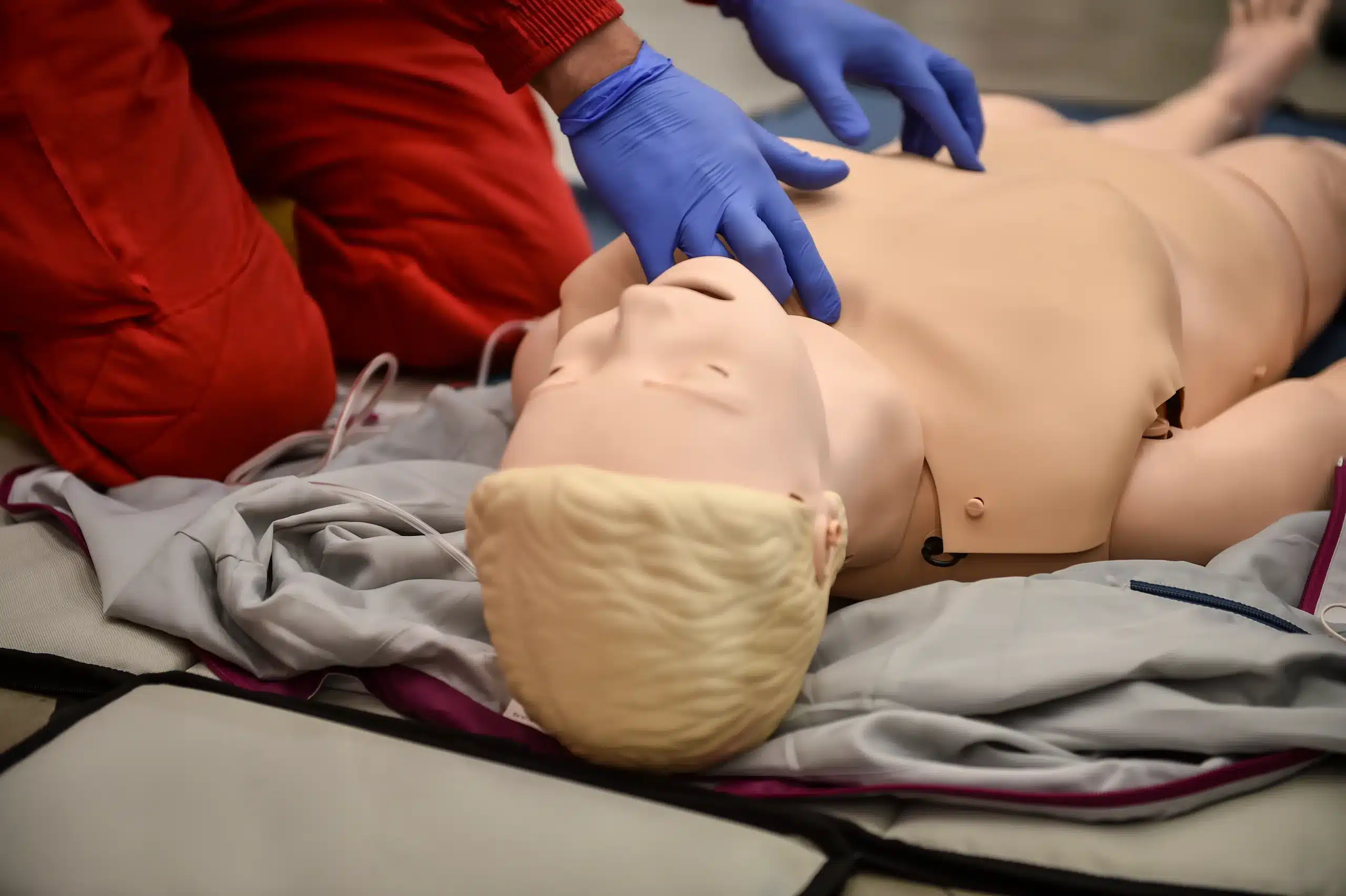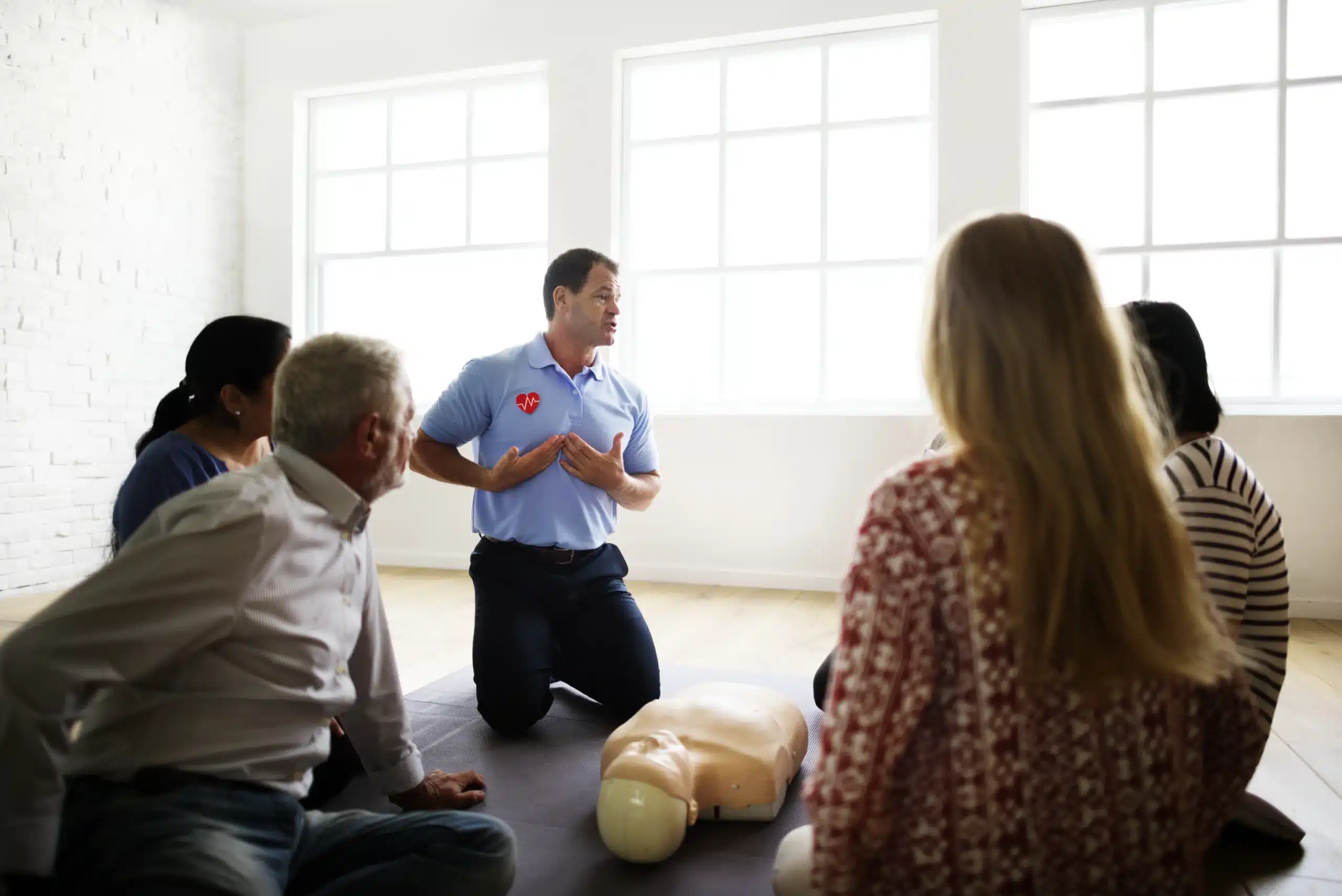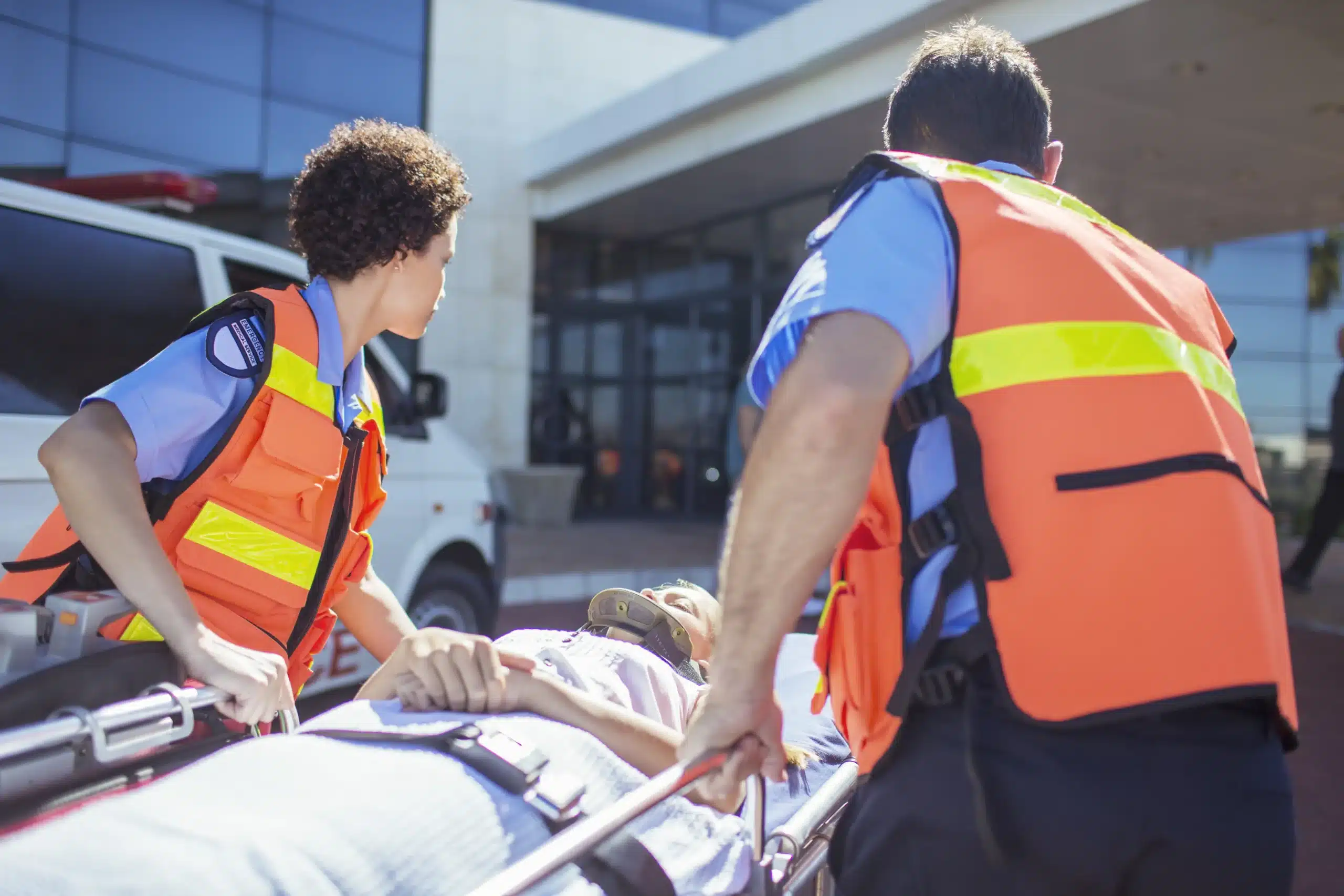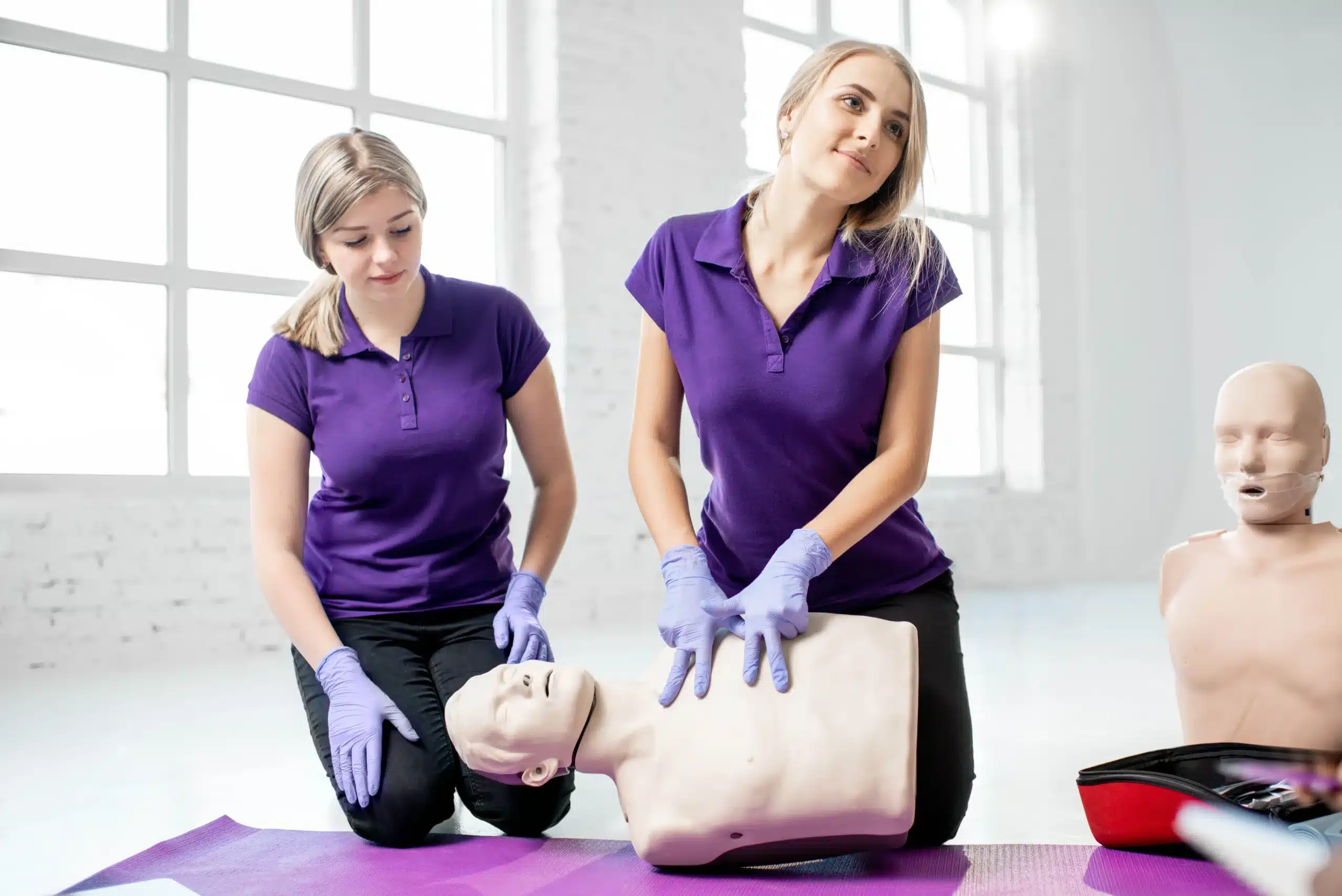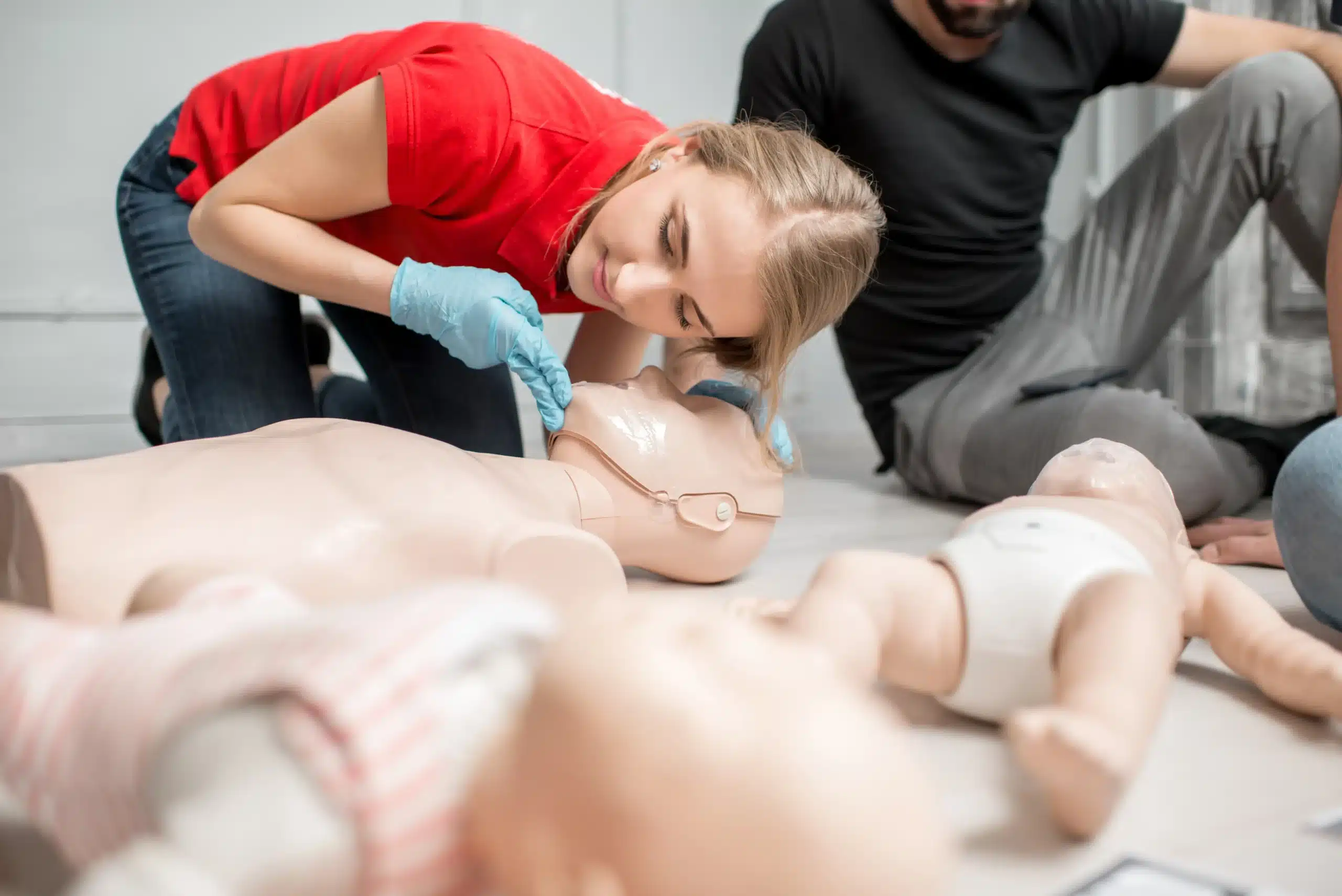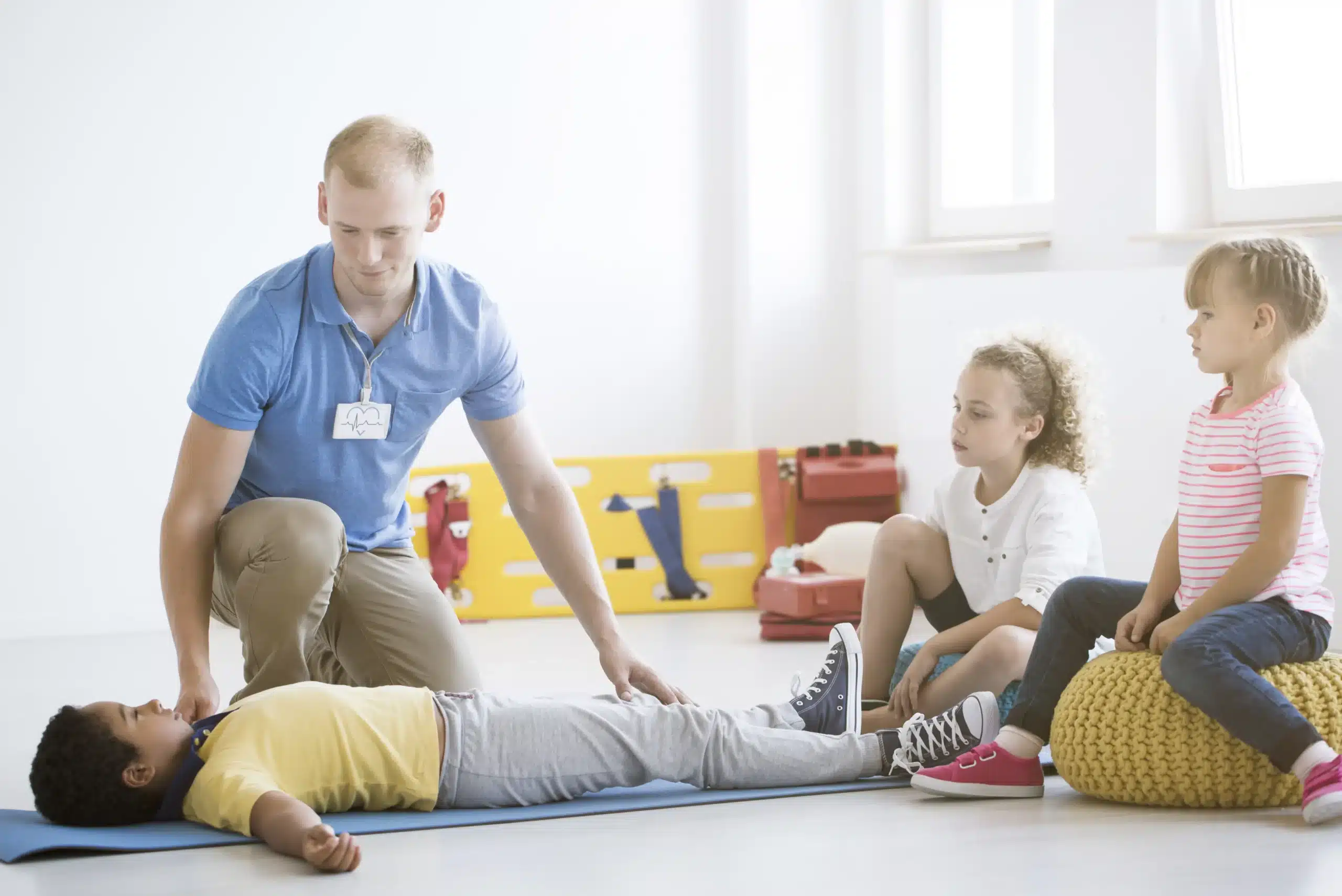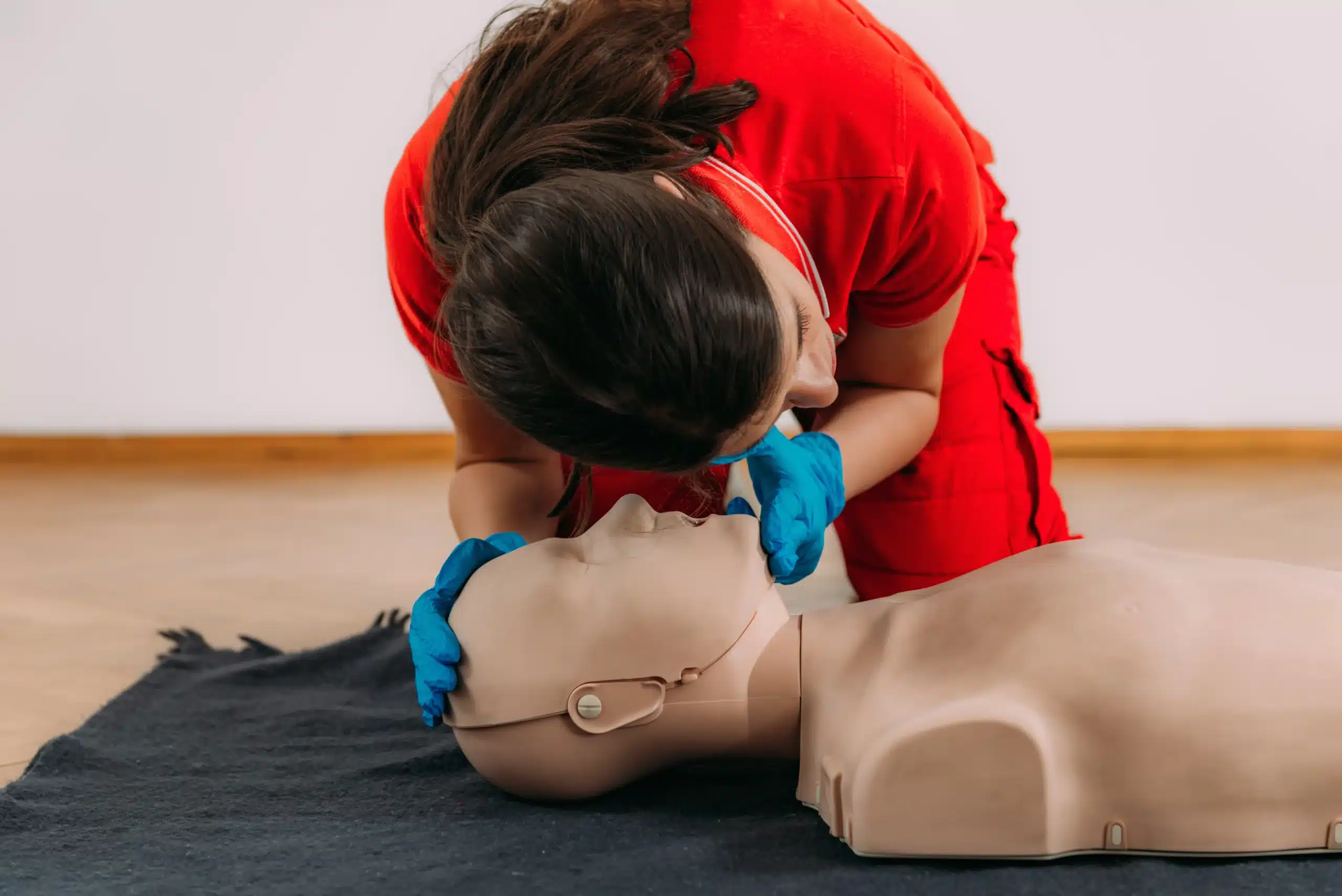As a healthcare provider in Stockton, your CPR skills are essential, yet maintaining them can be a struggle with traditional training methods. Resuscitation Quality Improvement (RQI) presents a new paradigm in CPR training, focusing on consistent practice and real-time feedback. RQI in Stockton offers a flexible and effective way to stay current on your certifications and confident in your abilities. This article explores the key differences between RQI and traditional CPR, highlighting the benefits of RQI and providing resources for finding RQI certification in Stockton. Discover how RQI can transform your CPR skills and empower you to make a real difference in critical situations.
Key Takeaways
- RQI builds confidence through consistent practice. The program’s shorter, more frequent sessions, combined with real-time feedback from advanced manikins, help you master CPR skills and maintain competency over time.
- RQI fits your busy schedule. The flexible, blended learning format allows you to complete online coursework at your own pace and conveniently schedule shorter, in-person skills sessions. This makes staying certified easier than ever.
- RQI is available locally in Stockton. Several training centers in Stockton offer RQI courses, making high-quality CPR training accessible to healthcare providers, students, and community members alike. Find a course near you and become equipped to save lives.
What is RQI? Revolutionizing Healthcare Training in Stockton
The Resuscitation Quality Improvement (RQI) program represents a significant advancement in CPR training for healthcare professionals. Developed by the American Heart Association, RQI focuses on mastering high-quality CPR skills through regular, short training sessions. This innovative approach helps healthcare providers in Stockton stay sharp and confident in their abilities to deliver life-saving care during emergencies. You can learn more about the program on the RQI Partners website.
RQI moves away from the traditional model of CPR training and instead uses a “low-dose, high-frequency” method. This means providers engage in frequent, shorter online learning modules followed by hands-on skills assessments. These assessments use advanced manikins with voice-assisted feedback, allowing for consistent practice and reinforcement of proper CPR techniques. For those in Stockton, this modern approach is available through certified training centers like Safety Training Seminars. This method helps providers maintain a higher level of competency compared to traditional CPR training, which often involves longer periods between refresher courses. More information on the benefits of this approach can be found on Laerdal Medical’s RQI page, a key partner in developing the technology behind RQI.
What Makes RQI Different from Traditional CPR?
RQI, or Resuscitation Quality Improvement, represents a significant shift from traditional CPR training. It’s designed to improve resuscitation skills and, ultimately, patient outcomes. Here’s a breakdown of the key differences:
Low-Dose, High-Frequency Training
Traditional CPR courses often involve lengthy, infrequent sessions. You learn a lot at once, but retaining those skills over time can be challenging. RQI takes a different approach. It emphasizes short, frequent practice sessions distributed throughout the year. This “low-dose, high-frequency” method reinforces skills and helps you maintain competency. Think of it like regular workouts—shorter, consistent practice builds and maintains strength over time. This distributed practice model helps embed the skills into your muscle memory, making them readily available when needed.
Realistic Simulations with Voice-Assisted Manikins
RQI training incorporates advanced technology to create a more realistic and effective learning experience. You’ll practice on sophisticated manikins equipped with voice-assisted feedback. These manikins provide real-time guidance and corrections, helping you refine your technique and build confidence. This immediate feedback is invaluable for mastering proper CPR techniques and ensures you’re practicing correctly every time. The realistic simulations prepare you for real-world scenarios.
Data-Driven Performance Tracking
One of RQI’s most innovative features is its data-driven approach. The system tracks your performance during each practice session, providing valuable insights into your strengths and areas for improvement. This data-driven approach allows you to monitor your progress and identify specific skills that need further attention. It’s like having a personal CPR coach that analyzes your performance and provides personalized guidance. This personalized feedback helps you focus your efforts and maximize your skill development.
Immediate, Objective Skills Feedback
Unlike traditional CPR courses where feedback might be limited to the instructor’s observation, RQI provides immediate, objective feedback after each practice session. The manikins measure key metrics like compression depth and rate, ventilation volume, and hand placement, giving you precise data on your performance. This objective feedback helps you identify areas for improvement and refine your technique with each practice session. You’re not just practicing; you’re practicing effectively, with clear data to guide your improvement.
RQI Courses in Stockton
RQI courses offer a flexible and efficient way to stay current on your certifications. Safety Training Seminars in Stockton provides several RQI programs to meet the needs of various healthcare professionals.
BLS RQI
The American Heart Association’s Basic Life Support (BLS) RQI program is the quickest and most convenient way for healthcare providers in Stockton to renew their BLS certification. This program uses low-dose, high-frequency training to reinforce essential CPR skills and knowledge. The emphasis on hands-on practice and immediate feedback with voice-assisted manikins ensures you’re prepared for real-life emergencies. Learn more about our BLS course.
ACLS RQI
For healthcare providers involved in advanced cardiac life support, the ACLS RQI program in Stockton offers comprehensive training. This course covers essential algorithms and interventions for managing cardiac arrest and other cardiovascular emergencies. Like the BLS RQI program, ACLS RQI uses a blended learning approach with online modules and hands-on skills sessions. Find out more about our ACLS training.
PALS RQI
Pediatric Advanced Life Support (PALS) RQI courses in Stockton provide healthcare professionals with the skills and knowledge to respond effectively to pediatric emergencies. This program focuses on the specific needs of infants and children, covering topics such as respiratory distress, shock, and cardiac arrest. The structured approach of PALS RQI ensures that providers maintain competence in these critical skills. Explore our PALS course for more details.
Who Needs RQI Training in Stockton?
RQI training isn’t just for a select few—it’s designed to equip a wide range of individuals with the skills to respond confidently in medical emergencies. Whether you’re a seasoned healthcare professional or simply want to be prepared for the unexpected, RQI offers valuable training that can make a real difference.
Healthcare Providers and First Responders
For medical professionals in Stockton, staying up-to-date with the latest resuscitation techniques is crucial. RQI is the preferred method for healthcare providers and first responders to maintain their American Heart Association certifications, including BLS, ACLS, and PALS. RQI offers a streamlined and efficient way to refresh these essential skills, ensuring they’re always ready to provide the best possible care. It’s the most modern and efficient way to get and stay certified. Learn more about RQI classes in Stockton, CA.
Medical Students and Healthcare Facilities
RQI plays a vital role in preparing the next generation of healthcare professionals. Medical students in Stockton benefit from RQI’s focus on high-quality CPR skills and real-time feedback. This training helps them build a strong foundation in resuscitation techniques, setting them up for success in their future careers. Healthcare facilities also recognize the importance of RQI in maintaining a highly skilled workforce, and RQI’s commitment to accessibility in training makes it a practical choice.
Other Individuals
RQI’s benefits extend beyond the healthcare field. Anyone who wants to learn high-quality CPR can pursue RQI training. Childcare providers, teachers, coaches, parents, and other community members can gain confidence and competence in responding to emergencies. RQI empowers individuals to take action and potentially save lives, making our community a safer place for everyone.
Your RQI Learning Experience: What to Expect
This section walks you through what to expect during your RQI training in Stockton. We’ll cover everything from online coursework to hands-on skills testing, so you’ll feel prepared and confident going into your course.
Online Coursework and Flexible Learning
The American Heart Association RQI program offers a blended learning approach. You’ll start with online coursework, allowing you to learn the fundamentals of CPR at your own speed and on your own schedule. This flexible format makes RQI ideal for busy professionals and those who prefer self-directed learning. You can access the online modules from anywhere with an internet connection.
Hands-On Skills Testing with Advanced Technology
After completing the online portion, you’ll move on to hands-on skills testing at a designated RQI skills session location in Stockton. These sessions use simulation stations equipped with real-time feedback technology to guide you through the proper techniques for high-quality CPR. You’ll practice on voice-assisted manikins that provide immediate feedback on your compressions and ventilations. This real-time feedback is key to developing proficiency and confidence in your CPR abilities.
Continuous Practice and Improvement
RQI emphasizes continuous practice and improvement through short, frequent refresher sessions. These sessions fit easily into your schedule, making it easier to maintain your CPR skills. This low-dose, high-frequency approach improves CPR competence and retention compared to traditional CPR training models. You’ll regularly refresh your skills, ensuring you’re always prepared for an emergency.
Master Your Skills and Retain Them
The combination of online learning, hands-on practice with advanced technology, and ongoing refresher sessions helps you master and retain essential CPR skills. The RQI training program builds confidence and competence, ensuring you can effectively respond in critical situations. You’ll leave your RQI training feeling prepared and empowered to provide high-quality CPR.
RQI Pricing, Duration, and Certification
Cost Comparison with Traditional CPR Training
One of the most appealing aspects of RQI (Resuscitation Quality Improvement) training is its cost-effectiveness. Traditional CPR courses often involve significant upfront costs and require more frequent renewal, leading to higher expenses over time. RQI’s subscription model distributes the cost, making it a financially smarter choice. The “low-dose, high-frequency” nature of RQI also reduces the time healthcare providers spend away from their patients for training, minimizing disruption and further enhancing cost savings. For more information on RQI programs and their value, explore the resources available through RQI Partners.
Flexible Course Lengths and Scheduling
RQI training offers a level of flexibility that traditional CPR courses often lack. The online portion allows participants to learn at their own pace and fit the training around their busy schedules. This self-paced learning typically takes just a few hours to complete, eliminating the need to block out entire days for training. This approach is particularly beneficial for healthcare professionals balancing ongoing work responsibilities with continuing education requirements.
Same-Day Certification
RQI training streamlines the certification process, allowing students to receive their certification card the same day they complete the course. This immediate certification is a huge advantage for those needing to meet urgent employment requirements or maintain compliance standards.
Register for RQI Courses in Stockton
Step-by-Step Registration
Registering for RQI courses in Stockton is straightforward. Start by exploring the available RQI classes in Stockton, CA, offered by providers like Safety Training Seminars. These courses offer comprehensive CPR training through the American Heart Association’s Resuscitation Quality Improvement (RQI) program, a modern and efficient way for healthcare professionals to maintain their BLS, ACLS, and PALS certifications. After choosing your course, complete the online portion from home, which typically takes a few hours. Finally, schedule a short, in-person skills session.
Discounts and Promotions
Want to save on your RQI training? Many training providers, including Safety Training Seminars, offer various discounts. Check for any current promotions, which can often lower the overall cost. Registering with a group? Inquire about group discounts, especially if you can host the training at your workplace. This can be a cost-effective way for everyone to get certified together. For more information on potential savings, review Safety Training Seminars’ Low Price Guarantee.
Common RQI Misconceptions
Debunking Myths and Clarifying Benefits
RQI is a relatively new approach to CPR training, so it’s understandable that some questions exist. Let’s clear up a few common myths about RQI and highlight its real benefits.
First, RQI is not just another CPR certification. It’s not about checking a box. RQI is a comprehensive program designed to build and maintain high-quality CPR skills through consistent, short practice sessions and assessments. This approach, known as “low-dose, high-frequency training,” helps develop muscle memory and confident, competent responses. This differs from traditional CPR classes that often involve cramming information for a one-time test. The design of RQI entails true adaptive learning, deliberate practice, and a quarterly blend of cognitive and skill assessment activities. For more information on the design of RQI, check out this article on the Joint Commission’s revised resuscitation requirements.
Second, some believe that initial CPR training is enough. Unfortunately, studies show that CPR skills decline quickly without regular practice. RQI addresses this by providing the ongoing practice and feedback needed to maintain those crucial skills, ensuring you’re always ready to respond effectively in a real emergency. It is very difficult to consistently perform high-quality CPR without routine feedback and practice to create the right muscle memory. Brian Eigel debunks this and other CPR myths in this helpful piece.
Another misconception is that a standard BLS certification covers everything. While a BLS certification is essential, if your job requires it, you’ll likely need RQI training as well. Many healthcare systems now mandate RQI for their staff to ensure consistently high-quality CPR performance. The RQI FAQs offer further details about this requirement.
Finally, team-based CPR training and RQI are sometimes confused. While teamwork is critical during a cardiac arrest, RQI focuses on building individual competency first. A strong team is built on strong individual skills. RQI ensures each team member has the proficiency to perform high-quality CPR, contributing to a more effective team response. This article on the evolution of quality CPR offers a helpful perspective on the importance of individual skills within a team context. By addressing these common misconceptions, we can better understand the value of RQI.
Maximize Your RQI Training: Tips for Success
RQI training represents a significant shift in how healthcare professionals maintain their CPR skills. To truly benefit from this innovative approach, consider these practical tips:
Embrace the low-dose, high-frequency training model. Instead of cramming for a single, lengthy annual session, integrate short, regular practice sessions into your routine. This approach makes it easier to fit training into a busy schedule and reinforces skills and improves retention. Think of it like regular exercise—short bursts of activity are more effective than one long, infrequent workout. This distributed practice is a cornerstone of the RQI methodology and key to long-term competency. Actively engage with the immediate feedback provided by the RQI manikins. These sophisticated tools offer real-time feedback on your compressions and ventilations, allowing you to identify areas needing improvement and adjust your technique on the spot.
Don’t be afraid to make mistakes—they’re valuable learning opportunities. Use the feedback to refine your skills and build confidence. Take full advantage of all the RQI training components. The program goes beyond just the physical skills of CPR, incorporating cognitive learning and simulated patient cases. Engage with the online modules, participate actively in discussions, and immerse yourself in the realistic scenarios. By embracing the full curriculum, you’ll develop a more comprehensive understanding of CPR and be better prepared for real-world emergencies.
Commit to continuous quality improvement. RQI isn’t a one-time certification; it’s an ongoing process. Regularly participate in quality improvement sessions to stay up-to-date on the latest guidelines and best practices. View these sessions as opportunities to refresh your knowledge, refine your skills, and connect with fellow healthcare professionals. This commitment to continuous learning is crucial for maintaining a high level of CPR competence and contributing to improved patient outcomes. Embrace the journey of lifelong learning and make quality improvement an integral part of your professional development.
Why Choose RQI in Stockton?
RQI offers a fresh approach to CPR training, emphasizing consistent practice and skill maintenance. But where can you find RQI training in Stockton? And why is this method better than traditional CPR certification? Let’s explore the advantages and local resources available.
Local Training Providers
Safety Training Seminars
Safety Training Seminars, a woman-owned business, delivers high-quality American Heart Association courses throughout Northern California. They offer convenient daily AHA BLS, ACLS, PALS, CPR, and First-Aid certification courses in over 60 cities, making it easy to find a class that suits your schedule. Their Stockton location serves Stockton, Tracy, and Lodi.
American Heart Association Training Centers
The Resuscitation Quality Improvement (RQI) Program is an AHA initiative designed to elevate CPR skills through quarterly training. This ongoing practice helps healthcare professionals maintain proficiency and provide excellent patient care.
Local Hospitals and Medical Centers
Many hospitals and medical centers in Stockton have embraced the RQI program. Harrison Medical Center, for instance, found implementing RQI straightforward, and the manikin feedback significantly improved their staff’s CPR skills. This local adoption highlights the program’s effectiveness and growing recognition.
Impact on Healthcare Quality and Patient Outcomes
RQI’s low-dose, high-frequency training combats CPR skill decay, ensuring providers are always prepared. This method saves time and resources, leading to better patient outcomes. RQI’s quality improvement sessions and e-credential verification give hospitals a clear view of their staff’s CPR competency, fostering a culture of excellence. As Brian Eigel notes, RQI helps dispel common CPR misconceptions and clarifies this innovative training’s benefits. This focus on quality and consistent practice results in improved patient care and increased confidence among healthcare professionals.
Related Articles
- RQI Classes in Stockton, CA – Stockton CPR Classes
- CPR Certification in Stockton: A Comprehensive Guide
- CPR Classes in Stockton: Which Course Is Good for You?
- Why CPR is Important in Healthcare
- Pediatric Advanced Life Support (PALS) in Tracy – Stockton CPR Classes
Frequently Asked Questions
How does RQI differ from traditional CPR training?
RQI uses short, frequent training sessions, unlike traditional CPR’s longer, less frequent classes. This “low-dose, high-frequency” approach, combined with high-tech manikins and personalized feedback, helps you retain skills better and build confidence faster. It’s like regular workouts versus occasional intense training – consistency is key.
I’m a busy healthcare professional. How can I fit RQI training into my schedule?
RQI is designed for busy professionals. The online modules let you learn at your own pace, anytime, anywhere. The hands-on skills sessions are short and can be scheduled conveniently, minimizing disruption to your workday.
Is RQI training more expensive than traditional CPR courses?
While the initial investment might seem comparable, RQI’s subscription model often makes it more cost-effective in the long run. You avoid the recurring costs of full recertification courses and reduce time away from work, saving you money and minimizing disruption.
Who benefits from RQI training?
RQI benefits anyone who needs to know CPR, from healthcare providers and first responders to teachers, parents, and other community members. It’s particularly valuable for healthcare professionals who need to maintain their BLS, ACLS, and PALS certifications.
Where can I find RQI training in Stockton, CA?
Safety Training Seminars offers RQI courses in Stockton. You can also check with local hospitals, medical centers, and other American Heart Association Training Centers. Many facilities now incorporate RQI into their training programs.
